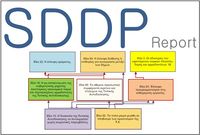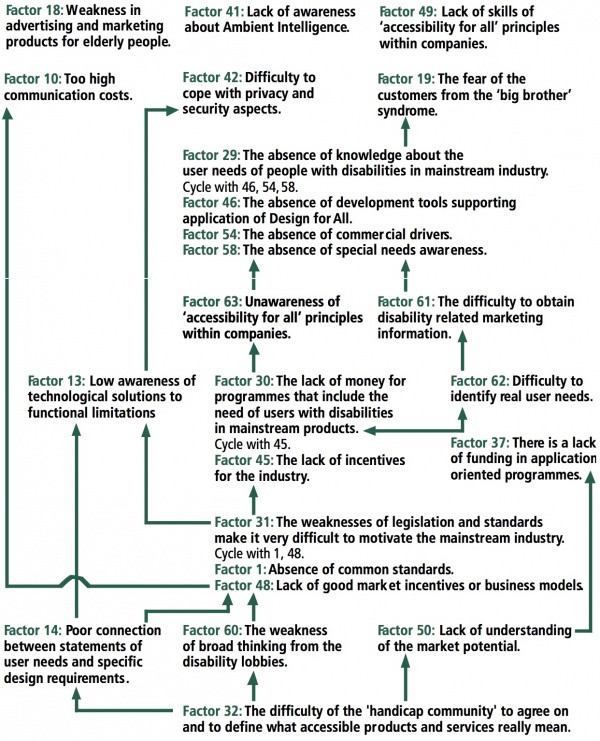SDDP COST 298 Participation in the Broadband society
|
Executive Summary
This report has been developed in the context of the COST 298 project. The goal of the project is to create a platform that can bring together the various stakeholders in the area of accessible and assistive ICT with a view to identifying Research & Development gaps and emerging trends and generating a research agenda roadmap.
The Triggering Question (TQ) was
What are the obstacles to the wider public benefiting from and participating in the broadband society?
In response to the TQ, the 21 participants came up with 55 mechanisms, which were categorized in 10 clusters. Following the voting process, 37 ideas received one or more votes and were structured to create the influence MAP shown below.
According to the participants of this workshop, the characteristics appear to be the most influential were:
- Mechanism #1, Big delay in decision making from the governmental side
The participants had time to discuss and reflect on the influence map and in general agreed that the arrows in the map made sense to them. In sum, the participants reported their satisfaction that their voices have been heard and documented and communicated their expectations for follow-up activities to address the diagnosis of their needs.
The workshop was facilitated by Elena Aristodemou (CNTI), Aleco Christakis and Georgina Siitta Achilleos (CNTI).

